- Home
- George Orwell
Orwell in Spain Page 2
Orwell in Spain Read online
Page 2
The succeeding paper, ‘Document Forty-Three’, was written on 11 May and is the first report back to the Comintern on the mixed results of the action. Regretting the extent to which the POUM and other forces had been able to resist the Stalinist onslaught, the author (whose identity in this instance is uncertain) relays the demand for ‘energetic and merciless repression’ by means of a ‘military tribunal for the Trotskyists’.* There is no need for guesswork about the meaning of this; Professor Peter Davison’s work on Orwell has already established that a Catalan version of the Moscow show-trials was in preparation, and that George Orwell and his wife Eileen would have been in the dock – an NKVD file unearthed in Moscow and dated 13 July 1937 describes them as ‘pronounced Trotskyists’ – had they not managed to slip across the border into France. As it was, many of their English comrades were imprisoned and vilely ill-used, and Andrés Nin, the leader of the POUM, was kidnapped by Stalin’s agents and tortured to death. With each succeeding disclosure from the records of the period, it becomes clearer that Orwell’s free-hand sketch of events was a journalistic understatement.
‘Part of his malaise’, wrote Jennie Lee, who saw Orwell in those terrible days, ‘was that he was not only a socialist but profoundly liberal. He hated regimentation wherever he found it, even in the socialist ranks.’ Ms Lee went on to become the wife of Aneurin Bevan, who was also Orwell’s editor and patron at Tribune. Her choice of the word ‘malaise’, and her stress upon regimentation, are both oddly paradoxical. To many supporters of the Spanish Republic, especially to foreigners who did not wish to impose themselves (as well as to those who did), it seemed axiomatic that one should first win the war against a fascist mutiny supported by Hitler and Mussolini, and only then discuss the shape of the future. Orwell, the old Etonian and former colonial policeman, and lifetime foe of affectations and posturings, might have been expected to be highly susceptible to this no-nonsense approach. In fact, in his ‘Notes on the Spanish Militia’, discussing a POUM attack on Huesca, he writes: ‘I was not in this show, but heard from others who were that the POUM troops behaved well.’ It sounds amazingly like a stiff-upper-lip staff officer (‘this show’) of the generation before.
Yet when it came to it, this rather insular and reserved Englishman – renowned in his own detachment as a bit of a stickler for discipline, whose wife when at the Aragon front wrote yearningly of Crosse & Blackwell pickles and Lea & Perrins sauce and good old English marmalade – brought himself to see that a conventional military victory was an illusion, and that what the place really needed was a thoroughgoing social and political revolution. Moreover, he came to understand that much of the talk about ‘discipline’ and ‘unity’ was a rhetorical shield for the covert Stalinization of the Spanish Republic. Undoubtedly, he was assisted to this conclusion by the calibre of the revolutionaries he met, both Catalan and international (he often finds occasion in these pages to speak well of the German comrades). And of course, he could tell in his bones and from experience that the Stalinists were lying. As a consequence, the honour of many decent and brave people was upheld, through his fragmentary but consistent writings, against a positive downpour of calumny and malice. This can sometimes make one feel better about the supposedly hopeless pragmatism, the sheer want of theoretical capacity, of the island race.
Integrity, though, is not just a matter of dogged adherence. It is most striking to see, in these pages, how Orwell continues to fight with the weapons of patience and politeness. Whether it is in combating an anonymous reviewer in The Listener (a stolid adherent of the commonsense school, this one, see page 295) or debating with other leftists like Raymond Postgate, he maintains the rules of rational argument and never – except in taking the odd pot-shot at an occasional fascist – descends into mere invective. He monitors reports of the trial of the POUM (page 311), keeps up the search for news of his missing or imprisoned friends and steadily answers all his correspondence. Every now and then, we glimpse another ‘flash-forward’ to the raw material of Animal Farm or Nineteen Eighty-Four, as when we read, on page 325, of his old comrade Georges Kopp being tortured by confinement with rats, or when Orwell drily notes that Antonov-Ovseenko, the Soviet commissar in Barcelona charged with the extirpation of Trotskyism, has himself been indicted in Moscow for Trotskyist deviations, or when in Orwell’s papers we find Bertram Wolfe’s eulogy to Andrés Nin, with its evident influence on the world of Goldstein and Big Brother. The only lacuna – and it is an odd one, given Orwell’s sensitivity to colonial questions – concerns the subject of Morocco. It was from this base, and with a heavily Moorish army, that Franco’s aggression had been launched. The demand of the Trotskyist Left was that Spanish Morocco should be immediately given its independence, first as a matter of principle and second because it might undermine Franco’s imperial rearguard. The Communist line was to oppose this, because such a policy would alienate Britain and France, the other two colonial powers in North Africa. Meanwhile, they used chauvinist propaganda against the employment of dark-skinned infidels by a Catholic crusade. The argument was a very intense one at the time; it is disappointing to find Orwell having so little to say about it.
The intellectuals and writers of enlightened Europe generated shelf upon shelf of prose and poetry during the Spanish Civil War, but it is absolutely safe to say that most of this stuff would not bear reprinting except as a textbook in credulity and/or bad faith. There is barely a sentence, however, in this collection which causes a wince or a shudder. Orwell, who did not share the febrile enthusiasm of the clenched-fist cheerleaders and propagandists (see page 248), none the less had a deeper belief than they did in the capacities of the Spanish people. His work also acts as a prophylactic against the efforts of a certain revisionist school, which now likes to argue that the victory of Franco was preferable after all, because the alternative would have been a prototype ‘Peoples’ Democracy’ of the order of Czechoslovakia in 1948. Orwell, who had grasped the nature of ‘Peoples’ Democracy’ more acutely than most, argued to the contrary. An awful tyranny was possible in either case, he granted, but:
Given a Government victory, it seems much likelier that Spain will develop into a capitalist Republic of the type of France than into a socialist state. What seems certain, however, is that no regression to a semi-feudal, priest-ridden régime of the kind that existed up to 1931 or, indeed, up to 1936 is now possible. Such régimes, by their nature, depend upon a general apathy and ignorance which no longer exist in Spain. The people have seen and learned too much. At the lowest estimate, there are several million people who have become impregnated with ideas which make them bad material for an authoritarian state.
In the event of a Franco victory, as Orwell also noted, ‘the desire for liberty, for knowledge and for a decent standard of living has spread far too widely to be killed by obscurantism or persecution’. Those who assert that Spain would have become Stalinized in the event of a Franco defeat are also fond of arguing that Franco’s regime was relatively benign, as against Hitler’s, say, and that it gave way in the end to democratic evolution from below. Why could not this be true in the opposing case, and for much the same reasons? The missing element in the calculation is the ability of people to make their own history, an ability which Orwell did not doubt since he had seen it demonstrated. Dystopia might win, but it did not have to, and it might not last. In this sense, the courage and bearing of the Catalans taught Orwell to argue against his own direst premonitions.
He was prescient even in the smaller things, writing in 1943 that it was mistaken to believe, as many did, ‘that Franco will fight for the Axis if the Allies invade Europe. Fidelity is not the strong point of the minor dictators.’ To combat Franco in 1937 was to hope for a reverse of European fascism tout court: once that struggle had been betrayed by Stalin and Chamberlain and Daladier, matters resumed the banal shape of realpolitik and local compromise. Excess of zeal is a poor guide, especially for the ideologically inclined.
Just such an excess of warti
me enthusiasm, and of the Puritanism that may accompany it, led Orwell to commit his only lapse into demagogy. In May 1937 – that cruellest of months for the cause, as it was to turn out – W. H. Auden published his extraordinary poem ‘Spain’, which first appeared as a shilling pamphlet with proceeds donated to Medical Aid for the Spanish Republic. In a long and extremely moving evolution of verses, the poet attempted to express his emotion for the martyred country itself (‘that arid square, nipped off from hot Africa and soldered so crudely to inventive Europe’), to hymn its centrality in the hearts of thinking and feeling people (‘Our thoughts have bodies/ The menacing shapes of our fever/ Are precise and alive’) and to register the moral agony that was experienced by intellectuals who abandoned neutrality and decided to support the use of force by their chosen side:
To-day the deliberate increase in the chances of death;
The conscious acceptance of guilt in the necessary murder;
To-day the expending of powers
On the flat ephemeral pamphlet and the boring meeting.
In successive articles, one of them written for The Adelphi in 1938 and another more celebrated under the title Inside the Whale, Orwell emptied the vials of contempt over this stanza in particular. He denounced it as
a sort of thumb-nail sketch of a day in the life of a ‘good party man’. In the morning a couple of political murders, a ten-minutes’ interlude to stifle ‘bourgeois’ remorse, and then a hurried luncheon and a busy afternoon and evening chalking walls and distributing leaflets. All very edifying. But notice the phrase ‘necessary murder’. It could only be written by a person to whom murder is at most a word. Personally I would not speak so lightly of murder… The Hitlers and the Stalins find murder necessary, but they don’t advertise their callousness, and they don’t speak of it as murder; it is ‘liquidation’, ‘elimination’, or some other soothing phrase. Mr Auden’s brand of amoralism is only possible if you are the kind of person who is always somewhere else when the trigger is pulled.
The laden sarcasm here is more than slightly thuggish; it also reflects one of Orwell’s less agreeable habits of mind, which was an instinctive prejudice against homosexuals. (Allusions to ‘pansy’ or ‘nancy’ poets elsewhere in his writing are common enough – there’s one on page 249. They are usually directed at Auden or his supposed clique, and are the only expletives uttered by Orwell that could also have been authored by Zhdanov or some other Stalinist cultural enforcer.)
Auden of course exemplified nothing of the kind; in order to believe that he was, you would have to find the words (not the phrases) ‘liquidation’ or ‘elimination’ to be ‘soothing’. His ‘brand of amoralism’ consisted in trying to be direct and honest about the consequences of going to Spain and overcoming what were essentially pacifist scruples. For example, though he broadcast propaganda for the Republican government from Valencia, he was revolted by the burning of churches – revolutionary actions which Orwell always reports and refers to with the utmost breeziness, as to be expected in time of class warfare and civil strife.
It isn’t clear how much immediate effect Orwell’s polemic had on Auden, but in 1939 he revised ‘Spain’ to delete all allusion to such choices, and after the 1950s he would not permit the poem to be anthologized at all. This is in more than one way a pity, because it robs us of a magnificent minor epic in verse, and leaves stranded and isolated a haunting phrase which many people have heard but which fewer and fewer people can ‘place’. That phrase – ‘History to the Defeated’ – forms part of the climax of the poem, and suggests in an elegiac way that the losers will never be granted their meed of honour. To them, history ‘May say Alas but cannot help or pardon.’ In later life, Auden came, wrongly in my humble opinion, to think of this as an expression of the repulsive idea that impersonal or Hegelian capital-H ‘History’ was necessarily on the side of the triumphant big battalions.
Yet ‘History to the Defeated’ is the underlying subject and text of this collection of pages and fragments. Like several others in the ‘midnight of the century’, the glacial period that reached its nadir in the Hitler–Stalin Pact, Orwell wrote gloomily but defiantly for the bottom drawer. He belongs in the lonely 1930s tradition of Victor Serge and Boris Souvarine and David Rousset – speaking truth to power but without a real audience or a living jury. It is almost tragic that, picking through the rubble of that epoch, one cannot admire him and Auden simultaneously. ‘All I have is a voice’, wrote Auden in ‘September 1, 1939’, ‘To undo the folded lie, / The romantic lie in the brain… And the lie of Authority.’ All Orwell had was a voice, and to him, too, the blatant lies of authority were one thing, while the ‘folded’ lies that clever people tell themselves were another. The tacit or overt collusion between the two was the ultimate foe.
In Catalonia three years ago, the history of the defeated was finally celebrated as a victory. A square near the Barcelona waterfront was named Plaça George Orwell, while a street in the town of Can Rull was named Calle Andrés Nin. Present at the dedications were many veterans of the Barcelona ‘May Days’ of 1937, who had survived to bear witness because Nin never betrayed any names to his interrogators and murderers. The translations of Dostoyevsky and Tolstoi that are read by Catalan schoolchildren are Nin’s translations; he was a figure in Catalonia’s literary and linguistic revival, and a lover of Russia for the same reason that he was a hater of Stalin. The history of the Civil War that is taught to Catalan schoolchildren now includes Orwell, and has been wiped clean of any totalitarian or revisionist taint. Truth, it turns out, is great after all, and can prevail. The book you hold in your hands is a modest, individual illustration of that mighty proposition, which will always stand in need of volunteers to vindicate it.
Christopher Hitchens
Palo Alto, California
May Day, 2000
* These documents, and many others of extraordinary interest, were disclosed as a consequence of an exclusive agreement between the State Military Archive and Yale University Press. They will appear in full in Spain Betrayed: The Soviet Union and the Spanish Civil War by Ronald Radosh and Mary R. Habeck (New Haven, Yale University Press, 2001). In view of the fact that I have disagreed strongly in print and in public with Professor Radosh, for his published views on the Spanish conflict, I should like to emphasize the unusual courtesy he showed in sharing his findings with me.
Editorial Note
In the main, the items reproduced here are given in the chronological order in which they were written or published. However, the order of events is sometimes better represented by not following this practice. It will be obvious, from dates and item numbers, where the chronological order has not been followed. Letters are typewritten unless stated otherwise. The titles used for Orwell’s essays and articles are not always his own but this distinction is not noted unless there is a special reason to do so.
Almost all the items are drawn from The Complete Works of George Orwell, edited by Peter Davison, assisted by Ian Angus and Sheila Davison (Secker & Warburg, 1998). Some explanatory headnotes and many footnotes have been added, amplified and modified. The Complete Works did not provide biographical notes of authors of books reviewed but, for this selection, these have been added if the author had a link with Orwell or if they might illuminate the context of Orwell’s review. Item numbers from the original edition are given in italics within square parentheses, and a list of volumes in which these items can be found is given in the Further Reading.
Where the text was in some way obscure, the original edition does not modify but marks the word or passage with a superior degree sign (°); in most instances such passages have been silently corrected in this edition but in a few instances the degree sign has been retained, for example, where one of Orwell’s idiosyncratic spellings occurs: e.g., ‘agressive’ or ‘adress’.
References to items in the Complete Works are generally given by volume, forward slash and item number in italic: e.g.: XV/953; page references to CW are given similarly exc
ept that the page number is in roman: XII/387; page references to this present volume are given as ‘p. 57’; references are also made to the companion three volumes: Orwell and Politics, Orwell and the Dispossessed and Orwell’s England. References to Homage to Catalonia are given to this edition by page and, within square brackets, by the CW volume number (VI) and page (the page numbers in CW and Penguin Twentieth-Century Classics are identical for the text): e.g.: p. 36 [VI/57].)
The following works are designated by abbreviated forms:
Complete Works and CW: The Complete Works of George Orwell, edited by Peter Davison assisted by Ian Angus and Sheila Davison, 20 vols. (1998); volume numbers are given in roman numerals, I to XX. Vols. X–XX of a second, enlarged and amended, edition are being published in paperback from September 2000.
CEJL: The Collected Essays, Journalism and Letters of George Orwell, edited by Sonia Orwell and Ian Angus, 4 vols. (1968; paperback, 1970)
Crick: Bernard Crick, George Orwell: A Life (1980; 3rd edn, 1992)
A Literary Life: P. Davison, George Orwell: A Literary Life (1996)
Orwell Remembered: Audrey Coppard and Bernard Crick, eds., Orwell Remembered (1984)
Remembering Orwell: Stephen Wadhams, ed., Remembering Orwell (1984)
S&A, Unknown Orwell: Peter Stansky and William Abrahams, The Unknown Orwell (1972)

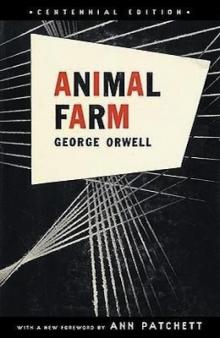 Animal Farm & 1984
Animal Farm & 1984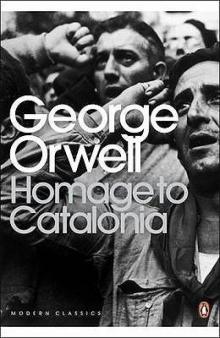 Homage to Catalonia
Homage to Catalonia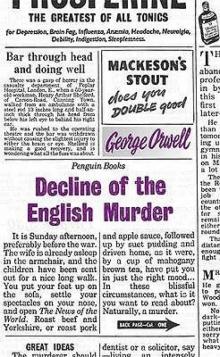 Decline of the English Murder
Decline of the English Murder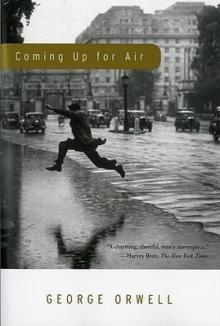 Coming Up for Air
Coming Up for Air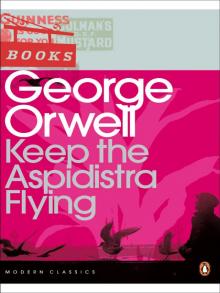 Keep the Aspidistra Flying
Keep the Aspidistra Flying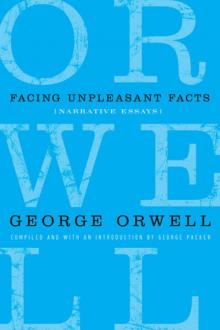 Facing Unpleasant Facts: Narrative Essays
Facing Unpleasant Facts: Narrative Essays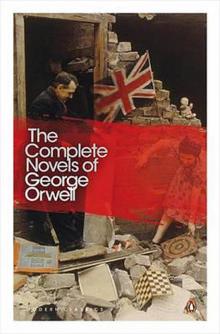 The Complete Novels of George Orwell
The Complete Novels of George Orwell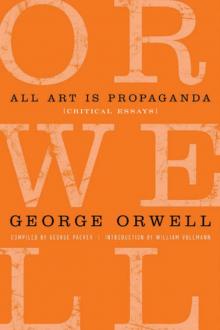 All Art Is Propaganda: Critical Essays
All Art Is Propaganda: Critical Essays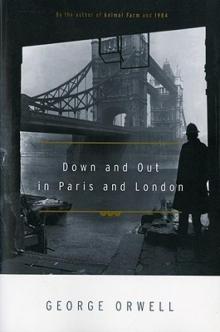 Down and Out in Paris and London
Down and Out in Paris and London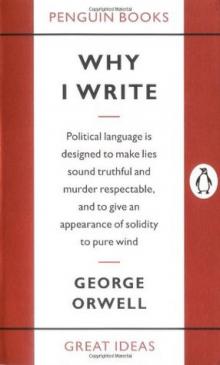 Why I Write
Why I Write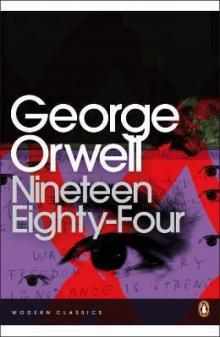 Nineteen Eighty-Four
Nineteen Eighty-Four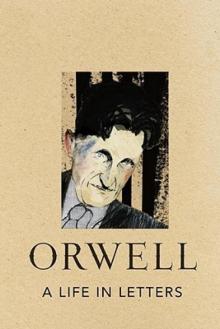 A Life in Letters
A Life in Letters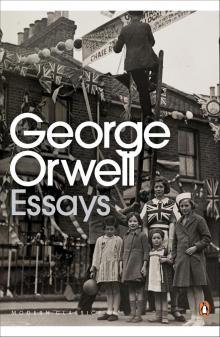 Essays
Essays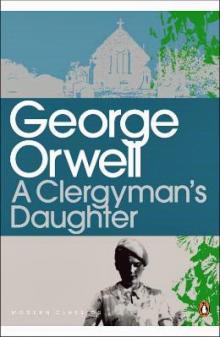 A Clergyman's Daughter
A Clergyman's Daughter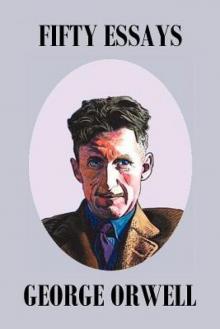 Fifty Orwell Essays
Fifty Orwell Essays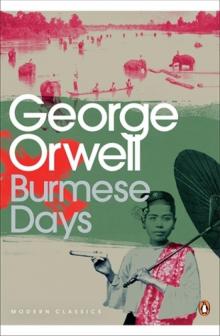 Burmese Days
Burmese Days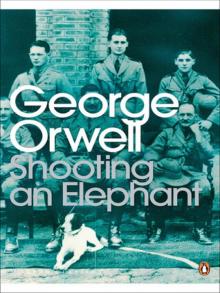 Shooting an Elephant
Shooting an Elephant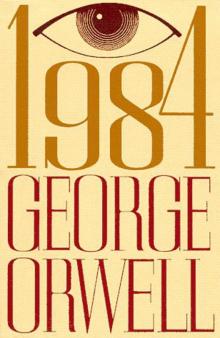 1984 (Penguin)
1984 (Penguin)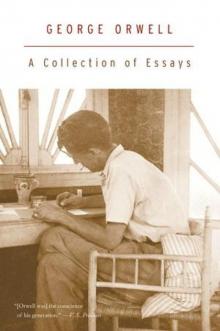 A Collection of Essays
A Collection of Essays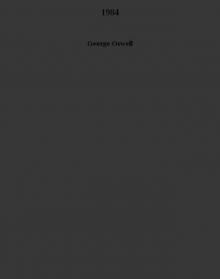 1984
1984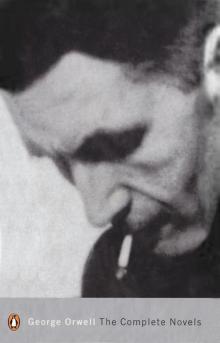 The Complete Novels
The Complete Novels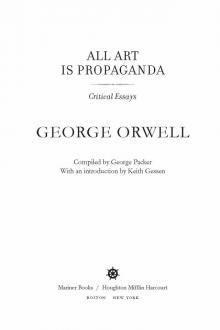 All Art Is Propaganda
All Art Is Propaganda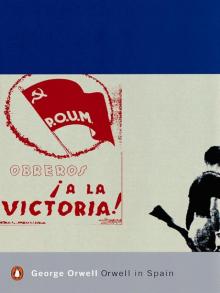 Orwell in Spain
Orwell in Spain Animal Farm: A Fairy Story
Animal Farm: A Fairy Story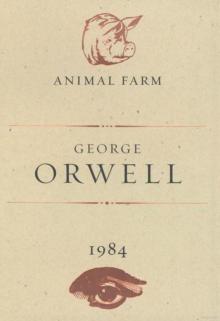 Animal Farm and 1984
Animal Farm and 1984